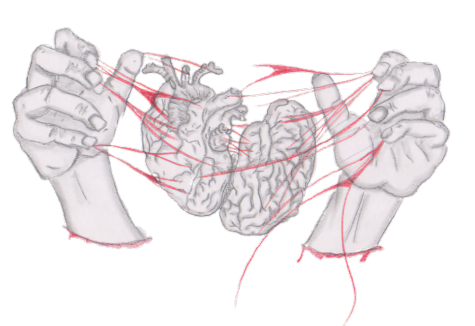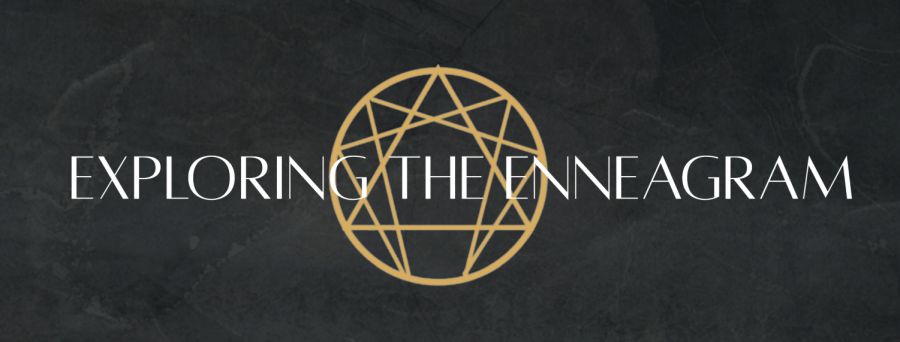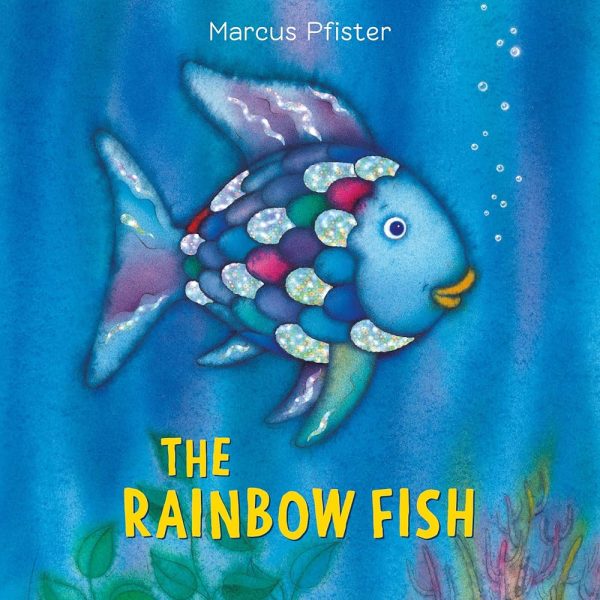Exploring the Enneagram
The Enneagram, a lesser known character “typing” system, digs deeper than the other commonly known typing systems. Rather than categorizing someone as simply “focused” or “passionate,” the Enneagram goes into the why. Why do we react the way we do? Why do we feel what we feel? The nine Enneagram types show our motives, shed light on what we dread, and explore why we excel at some things and struggle with others. It works as a map that, when we are honest with ourselves, will guide us through the fissures in our soul.
Type 1—The Reformer
The ideals of the Reformer stem from the feeling that they were let down at a young age in the sense that they felt heavily criticized and punished by a caregiver. This frustration morphed them into a rule follower, always striving to improve themselves, though stuck on perfection. The Reformer believes the world must be perfect and be kept perfect.
Type 2—The Helper
The Helper may have come to fruition through experiences of only feeling love when they were helping others. They in turn assumed their needs were unimportant and minimized them. As they matured, they developed a strong ability to love and care for others and to be a centerpoint in somebody else’s life. Helpers are nurturers and understand emotions on a deeper level than others — their deepest fear being that they are not loved.
Type 3—The Achiever
The efficient, confident, capable, self-assured aura possessed by Achievers stems from praise in their childhood —how they were only rewarded for what they did, and how well it was done. They feel they have lost or missed out on love from a caregiver, which has caused them to feel unseen. And so appeared the mindset that to be seen is to be loved. They may be out on a desperate search for love or for recognition, regardless of what it takes.
Type 4—The Individualist
The mindset of a Four may stem from a feeling of abandonment in their childhood. They understand the significance of everything around them but fail to see significance within themselves, oftentimes morphing into a struggle to find a sense of self identity. Fours have a drive to uncover their essence and their role in life, which turns into a constant search for deeper meaning.
Type 5—The Observer
Observers often find themselves in their own heads. They are fueled by a drive to understand because to them, transparency is the key to clarity. Deadlines and timelines are a challenge for Fives because they believe that learning, observing, and applying is a timeless activity. At one point, observers may have experienced a violation of an emotional boundary, which caused them to withdraw further back into their minds.

Type 6—The Skeptic
Though they oftentimes present as heroic, fearless, thoughtful rebels, Skeptics are exactly what their name suggests: skeptical. At one point they may have been scarred by a stressful situation or stressful living conditions. They instead view unpredictability as a threat and have become dependent on external sources of protective energy. Feeling protected is to feel loved, yet they struggle to love themselves.
Type 7—The Enthusiast
Enthusiasts project joy and energy to those around them and encourage others to live freely. Sevens are impulsive, which often catches the eye of others. But their restless euphoric actions may only be a ruse set in place to direct their own attention away from a feeling that they missed out on familial love. It is possible that a caregiver withdrew their love too soon and in doing so, Enthusiasts feel they have been robbed of their ability to feel loved and to, in turn, be loved.
Type 8—The Challenger
Challengers exude an aura of intensity and mystery, which can be traced to the premature loss of innocence, or “growing up too fast” due to overbearing emotions. Challengers are learning how to love again in the most defensive way possible. They fear interruption, betrayal, and exposure, yet they yearn for emotional intensity. Because of this, Eights develop trust through testing others. They are a walking example of what it means to be oppositional, yet are a strong example of what it means to exist passionately, progressively, and with a fiery vibrance.
Type 9—The Peacemaker
The outlook of the Peacemaker stems from the early idea that situations of external struggle are more important than their own personal needs. As children, they may have been overlooked or looked down on for expressing themselves, so they might feel a sense of guilt or selfishness around their own emotions, and in response they dull down their own passions and priorities to further validate the emotions of others. This opens the door to self forgetfulness.






